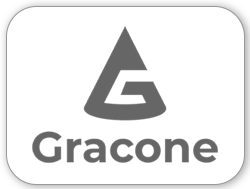
Thus far, I’ve painted a pretty rosy picture of PDH marketing on this website—and rightfully so! For many industrial manufacturers, educating and engaging engineers using webinars, lunch & learns, and online courses is a low-cost, effective tool to add to your marketing tool chest. But, PDH marketing is not right for every company. And even where it is a good fit, it’s not without its challenges.
Poor Fit
PDH marketing is not a good fit for some industrial manufacturers. It goes without saying, but marketing to engineers won’t be very impactful if engineers don’t influence the buying decision for your product. Take commodities, for example. Engineers are less likely to influence the purchase of pipe than they would a centrifugal pump. A pump is quite often specified by an engineer to meet very specific requirements for a particular application.
Pipe, on the other hand, is a standard product. It doesn’t matter which manufacturer I choose for a 3” Sch. 80 ASTM A106 Grade B pipe. The pipe is going to be manufactured to meet all the physical, material, and dimensional tolerances specified in the ASTM standard. What need is there for an engineer to get involved in the purchase? The purchasing decision will likely be based on commercial considerations, such as price and delivery, so it can be handled by a purchasing agent with little or no input from the engineer.
That doesn’t mean that commodity manufacturers can’t benefit at all from holding PDH marketing events. In some organizations, engineers are influencers and even the final decision-makers for commodity purchases. And there is something to be said for branding. Commodity manufacturers can use PDH events to establish credibility and name recognition with engineers who may be in a position to add the manufacturer to bid lists in the future.
Commodities are just one example of a possible poor fit for PDH marketing. Any product where the purchase is not influenced by an engineer is probably a poor fit. And by “engineer,” I mean “professional engineer.” A big incentive for professional engineers to attend PDH events is the PDH credit that they earn. Yes, a few unlicensed engineers may attend your webinar strictly for the educational value, but if you don’t have a significant pool of licensed professional engineers in your industry, then your attendance numbers will surely suffer.
How do you know if there are a lot of professional engineers in your industry? In many cases, the licensure rate doesn’t vary much between different industries and engineering disciplines. Computer and software engineering are notable exceptions. The pool of licensed professional engineers is extremely small in these areas since computer and software engineers only recently have been given a path to engineering licensure.
A couple of other points to note: electrical and control systems engineers have a lower rate of licensure compared to civil, structural, and mechanical engineers. And engineers working in the public sector tend to have slightly higher rates of licensure than engineers working in industry due to what’s called “the industrial exemption.” None of these differences are significant enough to warrant omitting electrical engineers or engineers working in the industry. Just recognize that the pool you are drawing from for PDH marketing events is slightly smaller.
Finding Speakers/Presenters Within Your Company
Even when PDH marketing is a good fit for an industrial manufacturer, a huge stumbling block for some companies is a lack of suitable presenters within the organization. Your presenter for a webinar or lunchtime presentation needs to be an employee of your company or one of your distributors. It’s not a job that should be left to an outsider.
Let’s say that you are a centrifugal pump manufacturer. You could hire an outside expert to deliver a presentation on a topic related to centrifugal pumps. This presenter might blow away the engineers in the audience with his knowledge of pumps. How does that help your company?
It would be disingenuous to imply that this expert is an employee. Thus, his vast knowledge and experience do nothing to establish credibility for your company. The engineers in the audience would not view this expert as a trusted resource that they could call in the future to help solve their problems—not unless they hire him as an independent consultant. Again, there’s no benefit to your company.
Your presenter for webinars and lunch & learns needs to be a Subject Matter Expert within your organization, not an outside consultant.
Finally, this expert couldn’t possibly be as knowledgeable about your product line as one of your senior engineers or salespersons. That may not matter during the presentation itself, since the focus should be on educating, not selling, but this expert would be useless to your company for those side discussions that occur after the presentation. You need to have your engineer or salesperson there to answer questions about how your products can provide solutions for specific project applications.
I believe we’ve established a pretty strong argument for using your own employees to make presentations, but that’s a challenge for many industrial manufacturers for one or more of the following reasons:
No Suitable Presenters
Delivering a presentation is not very difficult, except for people who have a fear of public speaking. But doing it well is another story. A person who presents a technical topic to a group of engineers needs to have a special skill set. He needs to have excellent oratory skills: confidence, passion, a commanding presence, powerful body language, good voice modulation, and an ability to connect with the audience. He also needs to be an expert on the topic he is presenting, which will likely be a technical topic when presenting to an audience of engineers.
It can be difficult to find technical experts within a company who are also skilled at public speaking.
There are a lot of people who are good at public speaking. There are also a lot of technical experts. But, people possessing both of these qualities are a bit of a rare breed. Some industrial manufacturers, particularly smaller companies, don’t have an abundance of such people on staff.
There’s not much you can do if your company suffers from this issue other than hire more people. You could hire a new employee with the right technical background and oratory skills to be a presenter, although it would take some time for him to become familiar with your product line. Alternately, you could use an existing salesperson or engineer to make presentations if you have one that has the right skill set and hire a new employee to backfill his position.
There is another strategy you can use. Let’s say you have a great orator who doesn’t have a strong technical background. And you have an engineer who’s not a great public speaker. Send them both to the presentation. Let the good orator give the presentation, while the engineer sits on the sideline ready to answer questions and offer his insights when needed.
Potential Presenters Are Too Busy
Some industrial manufacturers have plenty of employees on staff who would be excellent presenters, but they are too busy to be pulled away from their current tasks. Salespeople, for example, often make great presenters. Most successful salespeople have an outgoing personality and good communication skills. They are intimately familiar with the product line, otherwise, they wouldn’t be successful. And if they sell to engineers, they either have a technical background or they picked up the requisite technical knowledge somewhere along the way.
Most successful salespeople stay busy—engaging leads in the pipeline, researching prospects, making sales calls, and writing proposals. That’s what makes them successful. If you add webinar presentations to the salesperson’s task list, then something else on the list may suffer. After all, there’s only so much time in a day.
You have to answer the question, “Would making presentations to engineers be a more productive use of the salesperson’s time relative to other tasks on his list?” If the answer is “Yes,” then by all means, put him to work delivering webinars and lunchtime presentations.
If the answer is “No,” then perhaps you can still make it happen with a little creativity. First of all, are you sure that your salesperson can’t squeeze a couple of presentations into his schedule each month? A webinar presentation shouldn’t take up more than about an hour of his time. An on-site presentation, such as at an engineering firm, is more time consuming due to travel time, but you can efficiently use the salesperson’s time by piggy-backing the presentation with a sales call. Get the salesperson to ask his prospect to set up a lunch & learn and invite all the engineers in the office to attend. Set up the lunch & learn on the same day the salesperson visits the prospect to make a sales call.
If the salesperson really has zero time to spare, consider freeing up time by delegating some of his tasks to subordinates. Have an assistant do some of the prospecting work. Assign a junior salesperson to write sales proposals, which can then be tweaked by the senior salesperson before being sent out.
Lacking Content
Perhaps you have people on staff who are capable of giving presentations and they have time available to do so, but they lack the time or the skills to prepare slide presentations. If a lack of content is the only thing stopping you from holding PDH marketing events, there are solutions.
You can repurpose existing content to create slide presentations for your PDH events.
First, look within your organization to see what resources you already have. Sales presentations, brochures, whitepapers, blog posts, podcasts, ebooks, newsletters, technical articles, informational videos, and user manuals are all potential sources of content (both text and graphics).
As for who is going to bring all that content together and repurpose it, again, look within your organization. Do you have engineers, junior salespeople, content writers, and graphic designers that can work together to create a powerful PowerPoint presentation? If not, consider outsourcing the work. Gracone has an experienced content development team that can help.
Most Engineers Are Not the Final Decision-Makers
Industrial manufacturers sell high-dollar products that have long sales cycles, particularly in the case of engineered products. There seems to be a direct relationship between the selling price and the number of decision-makers on the customer’s project team. As the cost of the deal goes up, more stakeholders are usually involved.
The engineer that you engage in a webinar or a lunch & learn may have little, if any, purchase authority. If that’s a source of frustration for you, then you can try to engage managers and CEOs who do have purchase authority. Good luck getting an audience with them!
Of the many team members who input into an engineered product purchase, the engineer is typically the biggest influencer.
The fact is that the engineer is one of many team members who have input into the purchase decision, but the engineer is, in many cases, the biggest influencer for an engineered product purchase. He is the one looking for a product to fit an application or a solution to a problem. He is the one that researches manufacturers and recommends which ones are technically qualified to be added to the bidder’s list. He is the one writing the bid specifications that can make or break a manufacturer’s chances of being deemed technically qualified.
Your tasks as an industrial marketer are to be sure your company is discovered by that engineer and to qualify your business in front of him. His trust must be earned before he recommends your company up the chain to the project manager or the C-level decision-maker. While it would be great to get a meeting with the CEO and make a case for your company, it just doesn’t work that way most of the time. You may have to settle for getting in front of the engineer—a major influencer—but not necessarily the final decision-maker.
Freeloaders
All engineers who attend a PDH event are awarded PDH credit. Many of these engineers have a genuine interest in the topic and are good sales prospects. Others may be interested in the topic but are not in a position to buy or even influence the purchase of your product, although they may be in such a position in the future. Finally, there are those who enroll in your webinar who have no interest in your product and will likely never be a sales prospect.
“Freeloaders” have no interest in your product and only attend your PDH event for the free PDH credit.
I call the last group “freeloaders.” They are just in it for the free PDH credit. How can you stop freeloaders from attending your free PDH event? And should you?
Consider this scenario: your company manufactures and sells centrifugal pumps. You arrange with one of your customers to allow you to host a lunch & learn at his office for him and his coworkers. He works for a multi-discipline engineering firm that executes projects for a number of industrial and municipal clients. Your prospect asks if he can invite all the mechanical, electrical, and civil engineers who work at the firm. How do you respond?
Well, some of the mechanical engineers might be good sales prospects. You could tell him to invite just the mechanical engineers. Or you could tell him to invite only the mechanical engineers who work in the industrial division, since your pumps are not suitable for municipal applications. Or you could tell him to invite all the mechanical, civil, and electrical engineers.
It seems a bit awkward to request that your prospect omit some engineers from the invitation list, but you should be the one who decides which engineers to invite and how many lunches you want to buy. After all, it is your money.
You need to decide whether it’s worth the effort to prevent freeloaders from attending your PDH event.
However, is it really necessary to limit the attendance list? A good portion of the electrical and civil engineers, as well as some of the mechanical engineers, will likely opt-out on their own because of a lack of interest in the topic, but not all of them. A handful of freeloaders may attend your presentation. Whether it’s a lunch & learn at an engineering firm or a webinar over the internet, you need to decide how you feel about freeloaders. Is it worth the effort required to keep them out of your event?
You can go to great lengths to limit the number of freeloaders who attend your presentation, but extreme vetting of prospects prior to the event comes at a cost—both in the effort expended in the vetting process and the potential to lose valid prospects along the way. To ensure that only the best prospects enroll in your webinar, for example, you’ll need to ask enrollees a lot of questions and collect a lot of demographic data. If you make the enrollment process too long and onerous, you’ll suppress enrollment. That’s the goal, of course, if you’re trying to exclude freeloaders. But, along with the freeloaders, you could lose some valid prospects who are not willing to take the time and effort to navigate through your extensive vetting process.
You also risk losing promising leads if you exclude a prospect because of erroneous assumptions you make based on the information he submits. There will be enrollees who are good prospects, but don’t appear to be based on their engineering discipline, geographic location, etc. Be careful not to be overzealous in your attempts to limit enrollment.
Finally, consider the impact if you allow freeloaders to attend your PDH marketing event. It could be a big deal if enrollment is limited and the freeloader fills a seat intended for a valid prospect, but that shouldn’t be an issue in most cases. Commercial webinar platforms now have huge attendee thresholds. So, if you’re approaching the limit, then kudos to you!
If there are no enrollment limits, then what impact does a freeloader have on your event? For a webinar, there’s really no harm in letting a freeloader attend. For a lunch & learn, the impact is the cost of an additional box lunch—perhaps $15 (or $25 if it’s held in New York City).
Up until now, I have implied that a freeloader has no value to you, but that’s not always the case. Notwithstanding the name I’ve assigned them, some freeloaders do have value.
Engineers change jobs and get promoted to management. Today’s freeloader could be tomorrow’s buyer!
A structural engineer who attends your webinar has no use for your centrifugal pumps, but the mechanical engineer in his office might. Despite engineers’ reputation as introverts, we do actually talk to each other! When I worked in the oil & gas industry, I was personally introduced to several mechanical equipment products by coworkers who were structural, electrical, and control system engineers.
Also, engineers advance in their careers. Some become project engineers, project managers, and even CEOs. A good project manager makes it his business to have at least a rudimentary knowledge of important equipment purchases in all disciplines, regardless of his engineering specialty. Today’s freeloader could be tomorrow’s project manager. Or perhaps today’s freeloader is today’s project manager and you excluded him from your webinar because he was the wrong discipline. So much for making assumptions!


